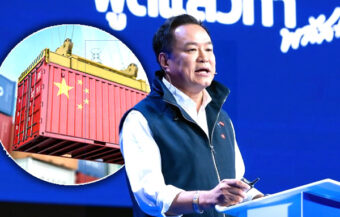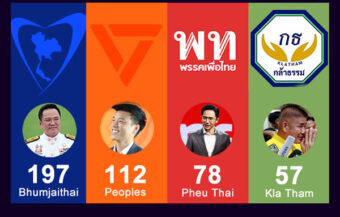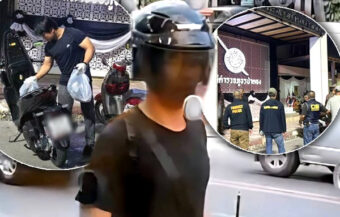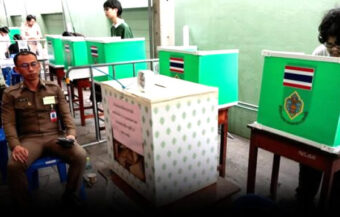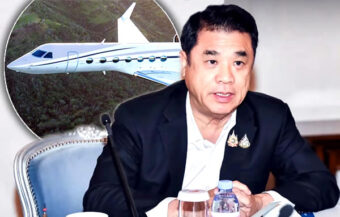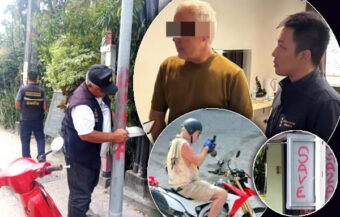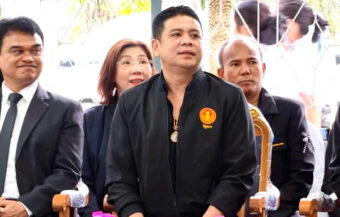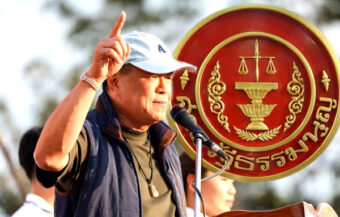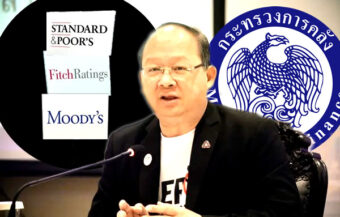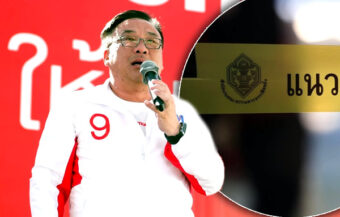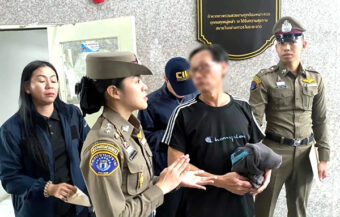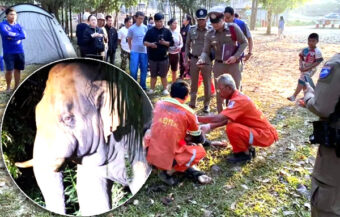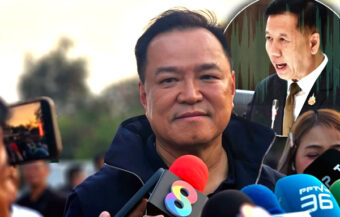Thailand’s constitutional reform faces mounting gridlock as Pheu Thai pushes a 151-member draft with broad public input, while Bhumjaithai and the People’s Party favour parliament-only selection, and General Prawit fiercely defends the entrenched 2017 charter.
On Thursday, the Pheu Thai Party submitted its plan to amend the 2017 Constitution, aiming to clear the path for a new charter. On the very same day, veteran Palang Pracharat Party leader General Prawit Wongsuwan, or “Big Pom,” emerged to fiercely defend the entrenched 2017 Constitution. Concerns are mounting that the People’s Party has been outmanoeuvred by Bhumjaithai, following their joint approach announced on Wednesday. This view dominates the Pheu Thai ranks and resonates with many outside observers, who warn that Thailand risks staying shackled to the 2017 Constitution—a document so rigid it is nearly impossible to amend.
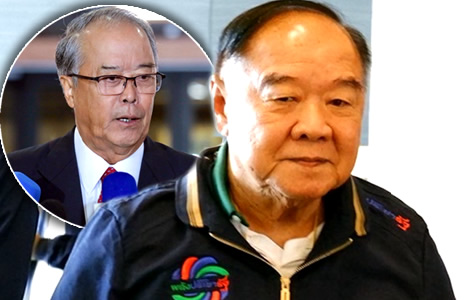
Thailand’s interim government has now taken office, and cabinet ministers are fully immersing themselves in daily operations. Consequently, attention has turned sharply toward constitutional reform. The nation’s eyes are fixed on discussions about legislation to create a new constitution, as political parties begin revealing competing proposals.
On Wednesday, the Bhumjaithai Party, with the backing of the People’s Party, unveiled its plan. It proposes a 99-member Constituent Assembly, whose members would be directly selected by Parliament. Observers warn that this approach may centralise power and reduce public participation in the constitutional process.
In contrast, the Pheu Thai Party introduced its own plan on Thursday. It suggests a 151-member assembly, emphasising broad public participation in the selection of members. Mr. Chusak Sirinil, former Prime Minister’s Office minister and legal advisor, indicated that the party could be open to compromise.
Pheu Thai calls for 151-member assembly with public input while Bhumjaithai favours selection by parliament
However, he cautioned that passing such legislation through three readings within four months is extremely unlikely. Therefore, both logistical and political challenges could slow progress toward a new constitution. Political analysts are increasingly concerned about the cooperation between the People’s Party and the Bhumjaithai Party. Since Prime Minister Anutin Charnvirakul assumed office, their alliance has alarmed observers.
Some warn that Bhumjaithai’s skilled networking could heavily influence the Constituent Assembly’s final composition. Consequently, Thailand could risk a constitution even more restrictive than the 2017 version. Pro-democracy groups argue that the 2017 charter already severely limits democratic freedoms and that similar constraints could persist or worsen.
Pundits argue that the People’s Party may be politically naive in aligning with the conservative Bhumjaithai Party. Therefore, the Pheu Thai Party emphasises public involvement in the drafting process.
Analysts warn Bhumjaithai influence and People’s Party alliances could restrict reforms and public say
Mr. Chusak Sirinil also highlighted that Thailand’s economic and political malaise cannot be resolved under the 2017 Constitution. Although approved by 60% of the population, the charter was ratified under a junta government. At that time, public discourse and commentary were tightly controlled, raising questions about the constitution’s legitimacy.
Meanwhile, General Prawit Wongsuwan, former deputy Prime Minister and Palang Pracharath Party leader, reinforced his support for the 2017 Constitution. Known as “Big Pom,” he called it an “anti-corruption constitution” and a foundation for ethical governance.
During a meeting in Pattaya on Thursday with the party executive board, MPs, prospective candidates, and members, General Prawit urged unity. He stressed that the party must work collectively to strengthen itself and prepare for the 2026 election. Furthermore, he highlighted that the constitution was specifically designed to monitor and suppress corruption, ensuring transparency, fairness, and high standards in government.
Prawit defends 2017 Constitution as an anti-corruption framework, urging unity and election readiness
In truth, it has not achieved that but instead ushered in constant political instability. In short, it creates a minefield for political leaders, with its generalised words and associated state agencies ready to prosecute office holders for ethical infractions.
It has seen three significant and popular political parties dissolved and removed two Prime Ministers since it came into force just eight years ago. In addition, it is seen as a tool for the conservative establishment, which wields outside influence over the country’s bureaucracy and judiciary. Basically, it introduces restrictions on political freedom.
The Palang Pracharath Party’s stance reflects deep divisions in Thai politics. While some parties push for reform, Palang Pracharath remains committed to defending the current charter. General Prawit also warned against any attempts to change the constitution, asserting that his party would oppose new drafts or amendments.
2017 Constitution has fueled instability and empowered conservative forces to block reforms in Thailand
Consequently, another political battle is emerging, with its depth and outcome still unclear. This situation is far from the “new start” the People’s Party promised when it supported Prime Minister Anutin Charnvirakul’s premiership.
On the same day, the Pheu Thai Party formally submitted its constitutional amendment draft to the Speaker of the House, Mr. Wan Muhammad Noor Matha.
Mr. Chusak Sirinil, a party-list MP and deputy leader, explained that the draft seeks to amend Chapter 15 to enable a new constitutional framework. He emphasised that this step does not yet begin the actual drafting of the constitution.
Rather, it sets the stage for Parliament and the people to approve amendments, after which drafting would commence. The Pheu Thai Party’s draft proposes that 100 members of the Constituent Assembly be selected by Parliament from 300 elected representatives.
This ensures each province has at least one representative, preventing collusion and vote-blocking. Additionally, 51 members would be nominated by universities, councils, professional organisations, and student groups. Therefore, the total Constituent Assembly would consist of 151 members, blending parliamentary oversight with societal input.
Pheu Thai submits 151-member draft assembly mixing public nominations with parliamentary selection
Mr. Chusak further stressed that while the assembly members may lack complete technical expertise, they could form committees of qualified individuals. These committees would draft a new constitution, which Parliament must approve before proceeding to a referendum.
In this manner, the process balances professional drafting with public accountability. Informal discussions among the parties suggest that drafting will begin only after amendments pass and Parliament is dissolved.
However, Mr. Chusak acknowledged the difficulty of completing three readings within four months. He noted that in the past, even ordinary bills have taken eight to nine months to pass.
Nevertheless, Pheu Thai insists on pursuing reforms because the 2017 Constitution has created obstacles, contributing to Thailand’s stagnation. He explained that the government’s economic and political struggles stem directly from structural problems in the current charter.
Drafting a new constitution faces tight deadlines and structural obstacles imposed by the 2017 charter
Moreover, coordination between parties remains a challenge. Mr. Chusak admitted that the three drafts—Bhumjaithai, People’s Party, and Pheu Thai—originate from very different political perspectives.
Rational discussion will therefore be essential to determine the most effective path. He declined to rank which draft is superior but emphasised that both Pheu Thai and the People’s Party prioritise public participation. Single-vote scenarios could create difficulties if one party controls the parliamentary majority.
When asked whether the parties might consolidate their drafts into a single proposal, Mr. Chusak said this suggestion was solely the opinion of former advisor to former Prime Minister Paetongtarn Shinawatra, Mr. Nattawut Saikua. Pheu Thai stands by its draft and leaves alignment to the other parties.
Regarding engagement with senators, Mr. Chusak emphasised that all parties, including the government and opposition, must exercise independent judgment. He stressed that the Senate retains full authority to approve or reject the draft.
Parties must navigate competing drafts and ensure Senate approval while maintaining public engagement
The proposed drafts collectively demonstrate a strong commitment to constitutional reform. Both Pheu Thai and the People’s Party have indicated readiness for public engagement, while Bhumjaithai relies on parliamentary selection.
Consequently, the Senate’s role is decisive in shaping the final framework. Analysts warn that this process will test Thailand’s political system, as competing visions collide over participation, oversight, and democratic legitimacy.
Presently, the Bhumjaithai and People’s Party favour a centralised process, with Parliament exerting significant influence over assembly selection. Conversely, Pheu Thai emphasises broader public input, reflecting a commitment to inclusivity and transparency.
These contrasting approaches highlight a fundamental political divide, with reformists advocating public participation and conservatives emphasising institutional control. Therefore, the negotiation process will shape Thailand’s governance and political landscape for years to come.
Senate will play a decisive role as parties clash over public input versus parliamentary control in drafting reform
General Prawit’s defence of the 2017 Constitution reinforces the tension between reformist and conservative forces. By maintaining the current charter, the Palang Pracharath Party signals continuity and anti-corruption priorities.
Meanwhile, Pheu Thai’s draft seeks to correct perceived shortcomings in the 2017 charter and ensure that citizens have a meaningful role in constitutional design. These opposing positions set the stage for an intense political confrontation in Parliament and beyond.
The timeline is pressing. Mr. Chusak stressed that the draft must be completed and submitted for a referendum before Parliament is dissolved. The Constituent Assembly, combining elected and nominated members, will then undertake the task of drafting the new constitution.
Each step is crucial, from parliamentary approval to public ratification, in order to ensure legitimacy. Failure at any stage could further delay reform and deepen political uncertainty.
As the process unfolds, political observers remain uncertain about the outcome. Key questions include which proposal will prevail, how public engagement will be integrated, and whether the Senate will approve the final draft.
Tension rises as parties race to finalise constitutional plan before Parliament dissolves amid political turmoil
Despite these uncertainties, the submission of multiple drafts signals determination among Thailand’s major political actors. All parties recognise the urgency of reform, though their methods and priorities differ sharply.
The question must nevertheless be asked: Is the Bhumjaithai Party genuine in seeking constitutional reform? The conservative party has consistently blocked and frustrated efforts to amend the 2017 charter. That was before it negotiated with the People’s Party to obtain the largest political party’s support for Anutin Charnvirakul as Prime Minister.
The coming months will be decisive for Thailand. Drafting a constitution requires balancing competing interests, satisfying public expectations, and safeguarding democratic principles. The Bhumjaithai, People’s Party, and Pheu Thai all demonstrate a willingness to engage. But is every party acting in good faith?
Thailand faces a critical period as major parties negotiate constitutional reform amid competing agendas
In the meantime, the ultimate outcome will depend on negotiation, consensus and parliamentary procedure. Citizens and stakeholders alike will closely monitor the process, as it will define the nation’s legal and political future.
Certainly, Thailand’s constitutional debate demonstrates the country’s complex and indeed broken political environment.
Anutin making all the power moves to consolidate his position as Prime Minister as opposition looks on
Strong case for Chaikasem Nitisiri to lead an interim government tasked with Constitutional change
PM Paetongtarn Shinawatra ousted by Constitutional Court, collapsing Thai government over audio clip
Bhumjaithai and the People’s Party advocate parliamentary-driven selection, while Pheu Thai prioritises public participation and transparency. General Prawit’s defence of the 2017 Constitution highlights conservative resistance to change.
The next steps will determine whether Thailand achieves a new constitution. Many people hope it will balance stability, inclusivity and democratic governance. On the other hand, there is a greater chance right now that they may well end up with the 2017 status quo.
Join the Thai News forum, follow Thai Examiner on Facebook here
Receive all our stories as they come out on Telegram here
Follow Thai Examiner here
Further reading:
New cabinet to be sworn in at Dusit Palace in Bangkok on Wednesday September 24th before the King
Anutin planning eight-month economic programme as his PM tenure will extend to the next government
2nd Army chief warns Acting PM Cambodian regime cannot be trusted and that border must stay closed

